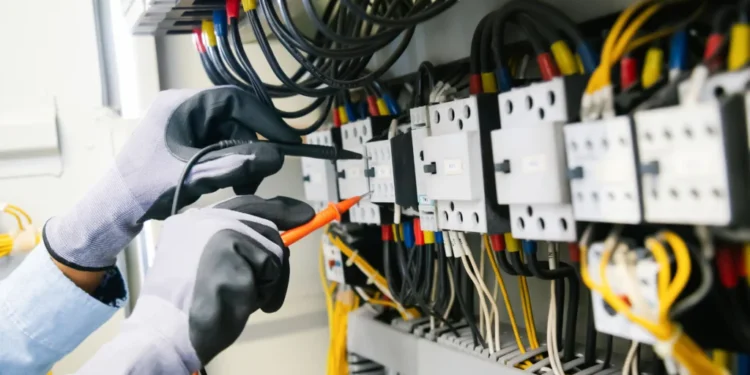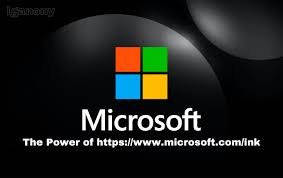The electrical contracting industry is experiencing a transformative shift driven by emerging technologies. Innovations like smart grids and the Internet of Things (IoT) are revolutionizing the way electrical contractors operate and improving the efficiency of electrical systems as the globe grows more interconnected. Embracing these technological advancements is crucial for staying ahead in a competitive market.To stay competitive in the electrical contractor business, it is essential for contractors to embrace emerging technologies like smart grids and IoT applications.
The Rise OfSmart Grids
Smart grids represent a significant leap forward from traditional electrical grids. Unlike their predecessors, smart grids use digital technology to monitor and manage electricity flows from all generation sources, including renewable energy. This capability provides several advantages:
- Enhanced Efficiency: Smart grids use real-time data to optimize the distribution of electricity. This means less energy is wasted, and power outages can be addressed more swiftly. For electrical contractors, this translates into opportunities for installing and maintaining advanced metering infrastructure and automated control systems.
- Improved Reliability: By integrating sensors and communication technologies, smart grids can detect issues before they escalate into major problems. This predictive capability allows contractors to implement preventive measures and offer value-added services, such as remote diagnostics and system monitoring.
- Integration WithRenewable Energy: As the shift towards renewable energy sources accelerates, smart grids facilitate the integration of solar panels, wind turbines, and other renewable sources. Electrical contractors must be prepared to work with these technologies, including installing and configuring inverters and energy storage systems.
The Internet OfThings (IoT) In Electrical Contracting
The IoT is revolutionizing various sectors, and electrical contracting is no exception. The network of linked gadgets that can communicate and share data is referred to as the Internet of Things. Here’s how the IoT is impacting the industry:
- Smart Buildings: IoT technology enables the creation of smart buildings that optimize energy use and enhance occupant comfort. Electrical contractors can install and configure smart lighting, HVAC systems, and other IoT-enabled devices. This shift towards smart building technology not only improves energy efficiency but also opens up new revenue streams for contractors.
- Predictive Maintenance: IoT devices can monitor the health of electrical systems and equipment, predicting when maintenance is needed. This predictive maintenance capability helps contractors avoid emergency repairs and schedule maintenance more effectively. By offering IoT-based maintenance solutions, contractors can enhance their service offerings and strengthen client relationships.
- Enhanced Security: IoT also plays a crucial role in enhancing security systems. From smart locks to surveillance cameras, contractors can integrate IoT devices that offer real-time alerts and remote-control capabilities. This not only improves the security of the properties but also adds value to the services provided by electrical contractors.
Staying Ahead Of TheCurve
Electrical contractors need to keep up with the latest technology developments in order to remain competitive in this quickly changing industry. Here are some strategies to stay ahead:
- Continuous Education AndTraining: Staying current with the latest technologies requires ongoing education. Contractors should invest in training programs and certifications related to smart grid technologies, IoT applications, and other emerging trends. This knowledge will enable them to offer cutting-edge solutions and maintain their expertise in a competitive market.
- Adopting New Tools And Equipment: Embracing new tools and equipment designed for smart grids and IoT applications is essential. This might include investing in advanced diagnostic tools, smart meters, and communication devices. By adopting these technologies, contractors can improve their efficiency and offer innovative solutions to their clients.
- Building Partnerships: Collaborating with technology providers and manufacturers can provide contractors with access to the latest innovations and support. Establishing partnerships with companies specializing in smart grid technology or IoT solutions can enhance a contractor’s ability to deliver high-quality services and stay at the forefront of industry trends.
- Expanding Service Offerings: As the demand for smart grid and IoT solutions grows, contractors should consider expanding their service offerings. This might include specializing in smart home installations, energy management systems, or predictive maintenance services. Diversifying services not only meets the evolving needs of clients but also positions contractors as leaders in the industry.
Conclusion
The integration of smart grids and IoT technologies is revolutionizing the electrical contracting industry, offering new opportunities and challenges. By staying informed about these advancements and adapting their practices, electrical contractors can position themselves for success in a dynamic industry. Adopting technology leads to increased service options and creative solutions in addition to increased efficiency and dependability. As the industry continues to evolve, those who are proactive in adopting and leveraging these technologies will be well-equipped to thrive in the future.



















